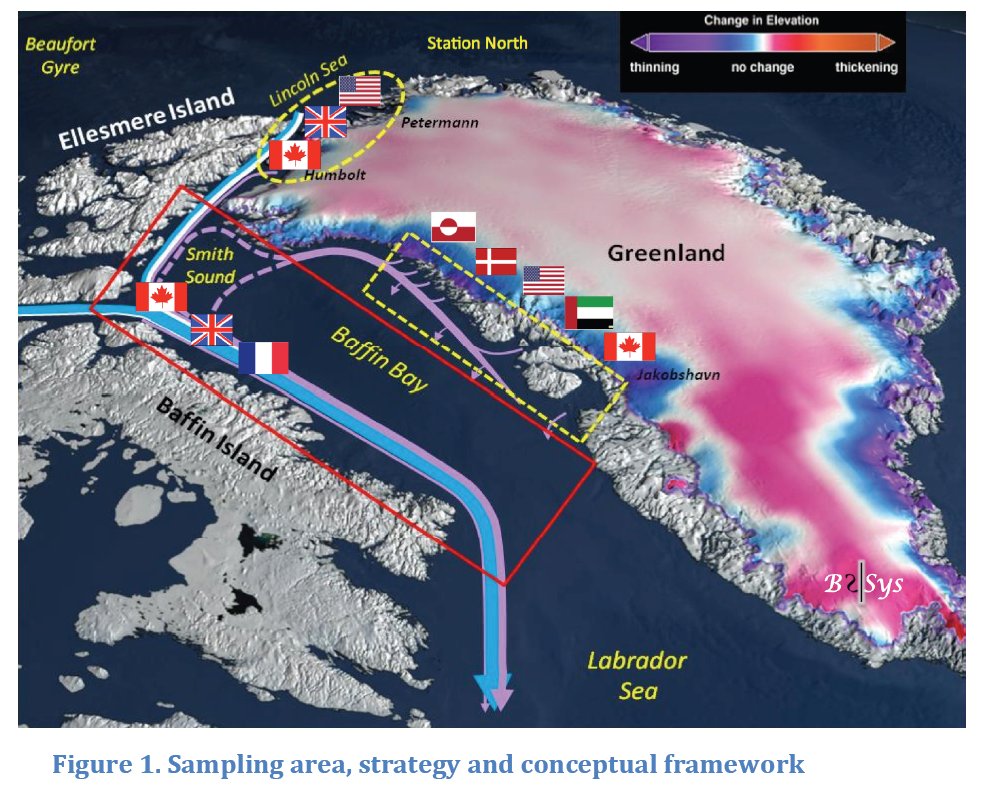Workshop on Baffin Bay & Labrador Sea
Workshop on Baffin Bay & Labrador Sea
Start/end date:
Monday, December 8, 2014 - 13:30 to 17:30
Event type:
Baffin Bay & Labrador Sea session
We propose a highly coordinated, multidisciplinary, international effort comprising leading teams of terrestrial and marine scientists to work collaboratively on a large-scale research program dedicated to understanding the processes that dominate terrestrialmarine coupling in Baffin Bay and Labrador Sea. The session will build on already planned activities in the area in 2015-2017 and is expected to form the basis for a coordinated long-term science program for the area. Significant international resources and expertise already exist (University of Manitoba, University of Laval, Dalhousie University, Greenland Institute of Natural Resources, Aarhus University) and this session will ensure these resources are fully integrated and engaged in a directed study of terrestrial-marine coupling within Baffin Bay, the causes and consequences of change in this region, and the development of knowledge required for policy development to ensure sustainable development of abundant resources. In particular this project will form a central pillar of the recently launched Arctic Council initiative to examine current and near future trends in Baffin Bay as part of the Arctic Climate Impact Assessment Process.

The science program will emphasize biogeochemical cycling between the littoral regions, associated freshwater glacial sources, and marine processes affected by this coupling. We envision a series of terrestrial camps where process studies will be
conducted in a coordinated way between Greenland and Canada (Fig. 1), coastal marine research using research vessels owned by Greenland, Denmark, and Norway and deepwater marine work in central Baffin Bay using the Canadian Research Icebreaker
CCGS Amundsen (Fig.1). Field camps will be used to sample pertinent terrestrial and glacial process throughout an annual cycle and coastal and marine research will be conducted as a sample throughout seasons to capture processes which couple the terrestrial and marine system. Analyses will be conducted to understand the sensitivity of various state variables to climate variability and change and how these processes connect across the terrestrial-marine interface affecting both spheres.
Stakeholders will be directly involved in the research program. Inuit circumpolar council (ICC), local policymakers and Self-governments will form a consultative team, bringing both traditional knowledge and co-management of resources to bear on scienceto-policy integration in both Greenland and Canada. Local, regional and national bodies with co-management responsibilities will be integrated into the program to ensure that policy outputs are delivered to pertinent users responsible for resource management and development in this region of rapid environment change and globalization.





